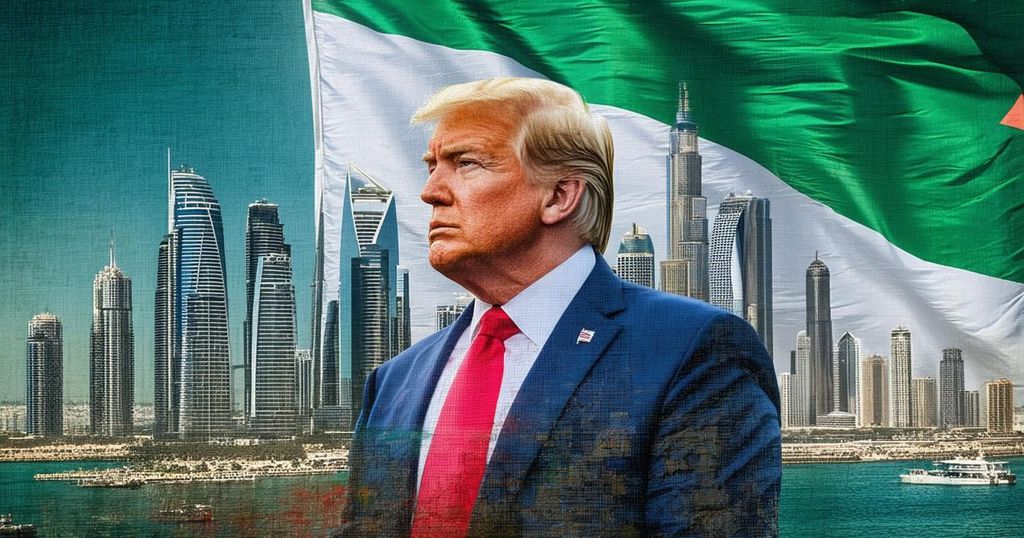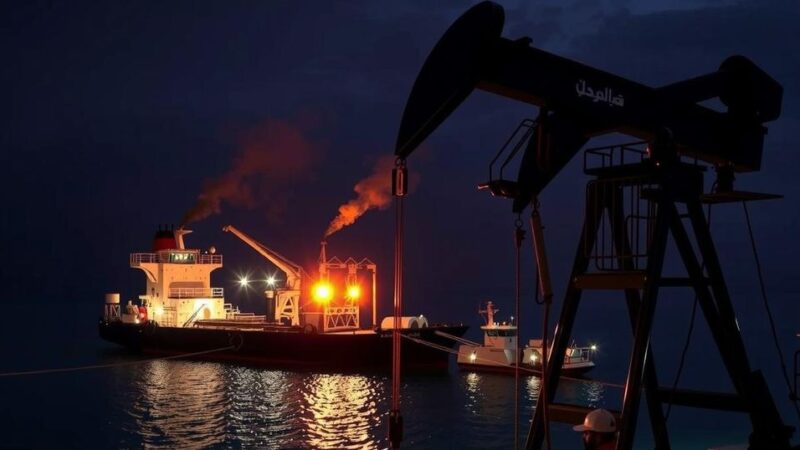The Gulf states, particularly Saudi Arabia and the UAE, prefer Donald Trump’s presidential candidacy over Kamala Harris due to concerns regarding U.S. foreign policy under a potential second Biden term. Trump’s prior administration reinforced military and economic ties that align with the Gulf states’ regional ambitions, whereas Harris’s anticipated diplomatic approach could threaten their interests, especially in relation to Iran and arms sales.
The geopolitical landscape of the Gulf states is increasingly intertwined with the outcomes of U.S. elections, particularly as the 2024 presidential race approaches. Recent developments in the region, including the ongoing war between Israel and Hamas and Iran’s strategic maneuvers, have heightened the concerns of Saudi Arabia and the United Arab Emirates (UAE). Both nations appear to be aligning their foreign policy preferences with the potential return of former President Donald Trump to the White House. Historically, Trump’s administration facilitated extensive arms deals and supported aggressive postures toward Iran that resonated with the strategic goals of both Gulf monarchies. In stark contrast, Vice President Kamala Harris’ anticipated policies may herald a shift towards diplomatic engagement and a more nuanced stance towards Iran—an approach that both Riyadh and Abu Dhabi may view as potentially undermining their interests in the region. During his presidency, Trump’s unconventional diplomatic style helped solidify the military and economic ties between the U.S. and the Gulf states. For instance, Saudi Arabia’s Crown Prince Mohammed bin Salman sought to enhance the kingdom’s military capabilities and established significant discussions regarding a security pact with the U.S., contingent on the normalization of relations with Israel, which has faced setbacks due to current regional conflicts. Further complicating the prospect of U.S.-Gulf relations under Harris, her administration is expected to exert greater scrutiny on arms sales and limit commitments to military support, especially in light of human rights concerns stemming from Saudi-led operations in Yemen. Enhanced cooperation with Israel, as evidenced by the Abraham Accords initiated under Trump, could also be at risk should Harris fail to support such initiatives. Cumulatively, these dynamics suggest that the Gulf states, particularly Saudi Arabia and the UAE, may perceive Trump as a more favorable option for advancing their geopolitical ambitions and mitigating Iranian influence.
The Gulf states, particularly Saudi Arabia and the UAE, have a vested interest in U.S. foreign policy as they navigate complex regional dynamics marked by conflicts such as those in Gaza, Yemen, and against Iran. Historically, U.S. support during Trump’s administration reinforced their regional power, facilitating arms deals and a more aggressive stance toward perceived threats. Conversely, the Biden administration, which includes Vice President Kamala Harris, is expected to pursue policies that favor diplomatic engagement with adversaries like Iran, potentially undermining the Gulf states’ security priorities. This shift in U.S. policy makes them apprehensive about a second Biden term, favoring the return of Trump instead.
In summary, as the 2024 U.S. election nears, Saudi Arabia and the UAE are likely to support Donald Trump’s candidacy over Kamala Harris due to his prior administration’s alignment with their geopolitical interests and aggressive stance on Iran. With concerns over regional stability, military cooperation, and the implications of U.S. foreign policy on their ambitions, the Gulf monarchies view Trump’s transactional approach as essential for securing their strategic goals and maintaining their regional influence amid rising threats.
Original Source: foreignpolicy.com







